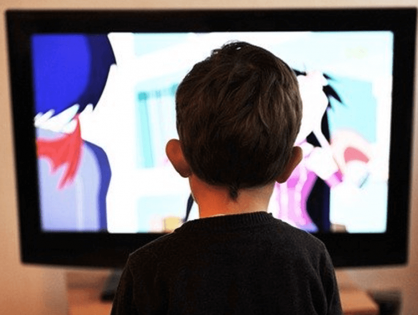STUDENT – PARENT HANDBOOK Welcome to The
Little Schoolhouse Learning Center!
The teachers, staff, and parents of The Little Schoolhouse have developed a comprehensive
guide to the programs offered at our school. We hope that you find the handbook
helpful in answering questions you may have regarding our operation. The handbook will
be up-dated yearly, and provided to every student’s family. The handbook contains
several policies that are of particular relevance to the health and safety of your
child. It is very important to have a full understanding of these policies.
Should you wish any additional information about our handbook, please call the school at
325-3795 or email me at schoolhousenassau@gmail.com.
Sincerely,
Kara & Sean Nottage
Business owners
Kara Nottage
Director & Principal
Helen Sweeting
Teacher (4-year-old class & Physical Education for all classes)
Robyn Ward
Teacher (3-year-old class)
Andra Sutherland
Teacher (Kindergarten class)
Charmine Johnson
Teacher (2-year-old class)
Mona Cartwright
Teacher’s Assistant (2-year-old class & Spanish Teacher for all classes)
Rhea Pratt
Teacher’s Assistant (3-year-old class)
MISSION STATEMENT
It is our mission to encourage discovery, self-awareness, and learning based on the needs of
each pupil using a variety of instructional approaches.
We will accept each child as an individual and provide opportunities for physical,
intellectual, social, and emotional growth.
In order to fulfill our mission, we will:
Provide a positive, caring environment that fosters self-esteem.
Encourage students to become life-long learners.
Develop the basic skills and the application of these skills to real-life situations.
Help students to become personally and socially responsible.
Promote a life-long pursuit of physical wellness.
VISION STATEMENT
The Little Schoolhouse will be an exemplary learning center in the country with engaged and
enthusiastic students, innovative and dedicated staff, and a supportive and involved
community.
Excellent teaching makes the difference for our students.
With study and support, our staff will be the most skillful teachers anywhere.
We will redefine the nature of teaching and student achievement.
We will operate on the belief that each student will achieve his or her maximum potential.
We believe that outstanding education is essential.
NON-DISCRIMINATION POLICY
It is the policy of The Little Schoolhouse not to discriminate on the basis of sex, race,
ethnic origin, or religion in its educational programs, activities, or employment policies.
Direct inquiries regarding compliance with this policy should be made to the Principal of The
Little Schoolhouse.
OUR TEAM
Kara & Sean Nottage
Business owners
Kara Nottage
Director & Principal
Helen Sweeting
Teacher (4-year-old class & Physical Education for all classes)
Robyn Ward
Teacher (3-year-old class)
Andra Sutherland
Teacher (Kindergarten class)
Charmine Johnson
Teacher (2-year-old class)
Mona Cartwright
Teacher’s Assistant (2-year-old class & Spanish Teacher for all classes)
Rhea Pratt
Teacher’s Assistant (3-year-old class)
SCHOOL ENROLLMENT POLICY
The Little Schoolhouse feels that the educational benefits realized through reasonable class
size are a primary factor in the enrollment policy. We have an open rolling admissions
policy that allows children to begin at any time of the school year provided the class can
accommodate another student.
ATTENDANCE
If you plan to keep your child out of school for an extended period of time (more than three
days) because of illness, trip, etc., please notify the teacher. We would also appreciate
being notified when you will be away or have someone else care for your child.
Parents are requested to call the school whenever their son/daughter will be absent or tardy.
The telephone number is 325-3795 and the email address is schoolhousenassau@gmail.com. The
school in turn will attempt to call parents if a student is absent without notification from
the parents.
During a period of absence due to illness or travel, a reasonable amount of homework for the
Kindergarten students will be assigned in an effort to catch up to the curriculum.
DAILY SCHEDULE
The schoolhouse is open from 8:00am – 5:30pm.
The 5-Morning Program is dismissed at 12:30pm. Children participating in the 3-Morning
Program come to school on Monday, Wednesday, and Friday from 8:00am – 12:30pm.
Children participating in the 5-Morning Plus Program are dismissed at 3:00pm on Tuesday and
Thursday, and 12:30pm on Monday, Wednesday, and Friday.
Children participating in the Full Day Program and the Kindergarten, Grade One, and Grade Two
Programs are dismissed at 3:00pm, Monday through Thursday. Friday dismissal is at 12:30pm.
ARRIVAL & DISMISSAL PROCEDURE
Children should arrive at school between 8:00am and 8:45am. For the preschool students, the
school day will officially begin at 9:15am. The Swordfish Lionfish (Kindergarten, Grade One
Two) and Shark (4-year-old) classes will begin at 8:50am.
Drop-off is conveniently situated at the front gate on Dowdeswell Street. This is the primary
entrance and exit for the school. During morning drop-off and afternoon collection, teachers
are assigned to assist the children for safety.
If you need to, public parking is available on Dowdeswell and surrounding streets.
Please collect your child at 12:30 or 3:00pm, and please be prompt.
SNACK & LUNCH PROCEDURES
A nutritious snack will be provided at mid-morning for the preschool students.
Swordfish and Shark students will bring their own snack for mid-morning. Please pack a
healthy lunch that will sustain your child’s energy for the school day. The lunch
period is from 12:00 -12:30pm. Please be reminded to use a cooler pack for
freshness. Water is always available to the children and provided during outdoor
activities.
A nutritious snack will be provided at mid-morning for the preschool students.
Swordfish and Shark students will bring their own snack for mid-morning. Please
pack a
healthy lunch that will sustain your child’s energy for the school day. The lunch
period is from 12:00 -12:30pm. Please be reminded to use a cooler pack for
freshness. Water is always available to the children and provided during outdoor
activities.
BIRTHDAYS
If you would like to celebrate your child’s special day at school, we are delighted to
assist. Let’s keep it special and simple. We will celebrate your child’s
birthday on the nearest Friday with your provision of cake (and pizza if you wish) to be
served at lunch (please deliver as early as possible, well before 11:30). The Birthday
Box (small trinket gifts to choose from) will commemorate the actual birthday. Please, no
invitations, party bags, or balloons.
We ask that personal party invitations be delivered off school grounds and thank you for
being considerate of the sensitive nature of children attending birthday parties at this
age.
The Little Schoolhouse is also available as a venue for your child’s birthday party! Inquire
with Ms. Kara for more details.
DRESS CODE
Acceptable dress is that which does not present any danger to a student’s health and safety,
cause any interference with schoolwork, or create classroom disorder. Wearing a hat is
not allowed inside. Bare feet are only allowed in special circumstances.
Please remember that the children will be outside for part of the day and should be dressed
in accordance to the warm or cool, and sunny weather.
The daily uniform consists of a royal blue T-shirt with The Little Schoolhouse embroidered
logo and khaki pants, shorts, skirt or skorts. The children will wear white or royal
blue socks, and white athletic shoes. School T-shirts ($22) and hooded sweatshirts
($33) are available and can be purchased from the teachers.
PARENT – TEACHER ORGANIZATION
Studies show that students whose parents participate in volunteer activities with their
children experience higher scholastic achievement. The Little Schoolhouse brings
parents and teachers together to plan programs and events for the student’s educational
experience.
There are many ways to participate. If you are unable to attend meetings, and would
like to help, please leave a message with the Principal.
HOMEWORK
The Dolphins, Sharks, and Swordfish classes will be given homework within a few weeks of the
start of school. Homework will be assigned for one or two nights a week. It may
involve reading, phonics, handwriting, language skills, or math skills. The
assignment should not take more than fifteen minutes.
The purpose of homework at this grade level is to reinforce concepts that the children are
learning in class. It helps parents know and understand what their child is
learning. Parents of Swordfish, Lionfish and Shark students should be involved in the
homework process and encourage independent work skills when it is appropriate. For
example, sit together for reading assignments and allow your child to complete other
assignments on their own, and then check the work together.
During a period of absence due to illness or travel, a reasonable amount of homework will be
assigned in an effort to catch up to the curriculum. Tutoring is recommended for
extended periods of absence when new concepts are introduced in the classroom.
If the teacher finds it appropriate for the student and the learning situation, some extra
skill-building activities may be suggested to do at home in an effort to reinforce the
concepts being learned in the classroom.
FIELD TRIPS
Field trips are taken throughout the year and are specifically related to the various themes
of study. Field trips enhance our school study by providing real life
experiences. Every field trip is researched and organized. The children are well
prepared for each field trip ensuring an enjoyable learning experience. Parents are
informed of the field trip in advance and asked to sign and return a permission slip with a
fee if required.
SPANISH
A Spanish language curriculum is taught to the Swordfish & Lionfish (Kindergarten, Grade
One & Grade Two) and Sharks (4-year-olds). The children learn basic phrases and
vocabulary to include: numbers, colors, body parts, foods, and weather. The curriculum
is presented in a fun atmosphere of Spanish songs and story readings. Corresponding
art projects help to reinforce the vocabulary and phrases learned. The children
increase their linguistic awareness by listening to Spanish dialogue videos.
Spanish numbers are taught to the Angelfish (2-year-old) and Dolphins (3-year-old) as part of
the morning meeting and calendar routine.
MUSIC
The children enjoy a Music Lesson every week in addition to our usual daily songs. The
Angelfish are learning songs with actions. They are encouraged to sing the words and
coordinate the actions. The Dolphins are being exposed to songs with visual
cues. They are identifying numbers, animals, and their sounds with different
songs. The Sharks and Swordfish are working to develop their auditory awareness and
music theory. They are learning the sounds of instruments as well as rhythm and
tempo. Every school year the students participate in two fun and creative musical
performances, in December and June.
SPORTS
The Sports Program has been designed to allow the children to develop their gross motor
skills, coordination and balance. Each age group is working to master gross motor
skills that are developmentally appropriate. The fun activities have an emphasis on
discovering new skills. A variety of equipment is used including: balls, hoops,
scarves, beanbags, skipping ropes, balance beams and other obstacle course elements.
The parachute is another popular activity during which the children must work together.
In our safe, happy and non-competitive environment the children are given many opportunities
to practice ball skills to include: catching, throwing, hitting, kicking and footwork.
The children enjoy simple playground games with different rules. These games have
increasingly complex directions to develop their listening skills and coordination.
SWIMMING
The Swimming Program is offered to the Kindergarten and Full Day enrolled students. The
swim lesson is on Wednesday afternoon from 1-2:30pm. We follow the Swim America
Program developing water confidence, then breath control and stroke work. The three
ability groups have no more than four students each. While having a fun time in and
around the water, the children are also following important water safety rules.
CONFERENCES
Our best effort is made to communicate the progress of your child on an ongoing basis.
We welcome every opportunity to converse with parents about any aspect of your child’s
development. Individual conference appointments are scheduled on a specific conference
day, twice per school year, in November and February. See your school calendar for
those dates. Written progress reports are provided after the first and third terms.
ASSESSMENTS
At the end of the 4-year-old year, each student has a formal assessment. The assessment
tool has been comprehensively designed and written by the staff at The Little
Schoolhouse. It reflects age appropriate cognitive development. The results of
this assessment are shared with the parents during the June conference.
COMPUTERS
The Little Schoolhouse is a wireless Internet zone. We have three permanent computers
and access to two others. The Swordfish and Shark classrooms have a computer.
The Angelfish and Dolphin classrooms have a desktop computer to enhance various
activities. We have a variety of programs on disc and on -line that are interactive
and educational for each age group. The children are using the mouse and keyboard with
increasing independence.
VOLUNTEER PROGRAM
Each year we have an active volunteer program. Volunteers help read stories, play
games, and share special talents with our students. If you would like to participate,
please speak to your child’s teacher.
SCHOOL REGULATIONS AND PROCEDURES
The school cannot be responsible for the loss of valuables that are brought to or left in the
school. If a student is taking school property or the personal belongings of other
students, with or without intention, the offending student’s parents will be contacted and
arrangements will be made for restitution of the property.
Students are held responsible for their own actions and they should be prepared to accept the
consequences of the actions. Parents of any student damaging property by way of
intentional act will be required to pay the cost of its repair or replacement.
Water pistols, knives, or any other item that may result in the annoyance or injury of
others, or damage school to property, are not permitted on the grounds of the school.
Trashcans are provided on the school grounds. Children are encouraged to not litter the
classrooms, toilets, or school grounds.
In case of fire or emergency, the signal to evacuate the school building will be a continuous
sounding of the smoke alarm. In such an event, the students and staff will proceed
immediately to and out the back entrance gate. We have scheduled our own fire drills,
three times per year, to practice the safety protocol.
SAFE SCHOOL POLICY
Schools are intended to be a safe environment for learning. It is the policy of The
Little Schoolhouse that the school building, premises, and vehicles in the designated school
parking spaces, shall be safe environments for students. It will be free of danger
posed by the presence of weapons, or any other dangerous object. It will be free of
conduct that threatens harm by the means of weapons or other dangerous objects. It will be
free of the presence of alcohol, tobacco or drugs.
Smoking is not allowed anywhere on the school premises.
STUDENT HEALTH INFORMATION
Students should not come to school in the morning if they are feeling sick before they
leave home. If a child is not well and needs to go home, it can be difficult to locate
parents and a great deal of time is lost in trying to do so.
It is important that each student’s emergency information is current.
If injuries occur at home, they are the responsibility of the family and should not
become an issue while the child is at school.
If you suspect a communicable disease, you should consult your doctor.
Please report the findings to the teachers and principal.
MEDICATION POLICY
Any student who is to take medication, or has been given medication before school,
either prescription or over-the-counter non-prescription medication during the school
day must be assisted by the teacher and have written permission/release on file from the
parent or guardian for such medication.
It is also the responsibility of the parent/guardian to notify the school of any change
in the student’s health/allergic status.
If a student has to be excused from school during the day for illness or an accident,
the teacher or principal will contact the parents.
Before returning to school students who have been ill must have recovered enough to be
able to participate in the general activities of the school including outdoor play.
LET YOUR CHILD GET THE hOLISTIC DEVELOPMENT!




best